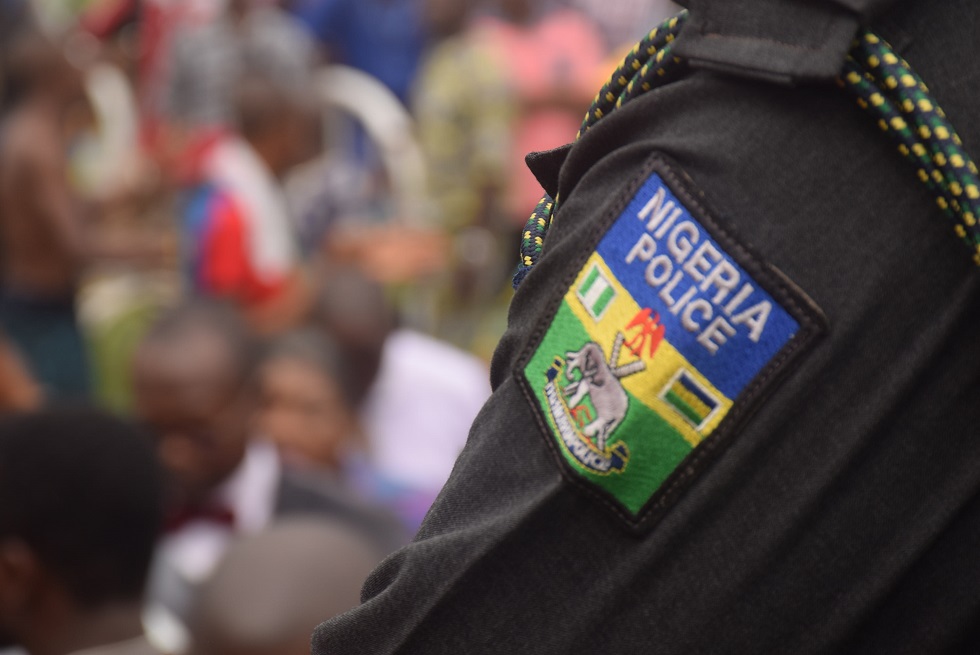
ANAMBRA, Nigeria – A 24-year-old man simply identified as Ebuka has been confirmed dead after he was shot by a group of policemen along Onitsha/Owerri Road in Anambra State, South-East Nigeria.
The deceased was reportedly shot by the police on Wednesday while moving on the highway, according to an X user Harrison Gwamnishu.
The deceased was immediately rushed to the hospital for treatment but was later pronounced dead due to the gunshot wounds, Gwamnishu said.
Gwamnishu added that the police officers who committed the murder immediately went into hiding to evade justice and shared pictures and videos of the incident on his X page.
He wrote: “24 year old Ebuka was allegedly shot and k!lled today by some police officers along Onitsha/Owerri road.
“The officers involved are currently in hideout. Ebuka was rushed to the hospital and confirmed dead. His body has been deposited at the mortuary……..
“THIS IS A CALL TO THE OFFICE OF THE INSPECTOR GENERAL OF POLICE @PoliceNG @Princemoye1 @AnambraPolice to respond to this ASAP!, and ensure the officers are brought to Justice.”
Reacting, national police spokesman Muyiwa Adejobi described the incident as sad, promising that the force would intensify efforts to ensure the culprits are punished.
“This is sad. The Force Headquarters has ordered the CPs Anambra and Imo to fish out the men and carry out a thorough investigation into the matter.
“The FHQ will not in any way condone this kind of act. This will be looked into, and we will compel the command whose AOR this occurred to update us all. May his soul rest in peace, while justice must be done,” Adejobi wrote.
Meanwhile, the Anambra State Police Command said in a statement that the police commissioner had ordered the detention of the patrol team members over the murder.
The command wrote: “The CP directs immediate transfer of the case to the State Criminal Investigation Department, (SCID), Awka, sues for calm and assures that the Command will ensure a thorough investigation into the case for justice to prevail.
“Further development shall be Communicated, please.”
Stories of police brutality are rampant in Nigeria, Africa’s largest democracy. Two-thirds of its estimated 200 million people are below the age of 30 and many, they have either had a personal experience with the police or know someone who has.
As decades of torture, maiming and killing by the country’s security forces stacked up, young people across the country took to the streets for days, beginning on October 8, 2020.
The target of their anger was the Special Anti-Robbery Squad (SARS), a rogue police unit accused of extrajudicial killings, extortion and kidnapping among other nefarious crimes.
Called #EndSARS, the protests ballooned into a massive call for the abolition of the squad. It flickered out on October 20 that year after soldiers opened fire on unarmed protesters at a popular landmark – the Lekki tollgates – in the commercial capital Lagos, killing dozens.
The Nigerian government abused the rights of #EndSARS protesters at the Lekki tollgate in October 2020, according to a ruling by the Economic Community of West African States (ECOWAS) Community Court of Justice.
In a landmark verdict delivered on July 10, 2024, by Justice Koroma Mohamed Sengu, the Judge Rapporteur, the court flayed the government’s particularly “disproportionate use of force” in response to the #EndSARS protest at the tollgate in Lagos on October 20, 2020.
The court also found that live rounds were shot into the crowd of unarmed protesters.
It asked the Nigerian government to pay a total of N2 million in compensation to each victim named in the suit.
The case which was brought before ECOWAS Court by a coalition of human rights activists and organisations, alleged severe violations of fundamental human rights by Nigerian security forces.
Amnesty International also submitted an Amicus Brief, which was declared admissible by the court. After thoroughly examining evidence and testimonies, the court concluded that the Nigerian government’s actions breached several international human rights standards, including Articles 1, 5, 6, 9, 10, and 11 of the African Charter on Human and Peoples’ Rights.
Among many other key findings, the court found credible evidence of disproportionate use of force and violations of the right to liberty and security, assembly, free speech, and dignity. It stated that the use of force was not necessary and contravened the Respondent State’s obligations under the African Charter.
